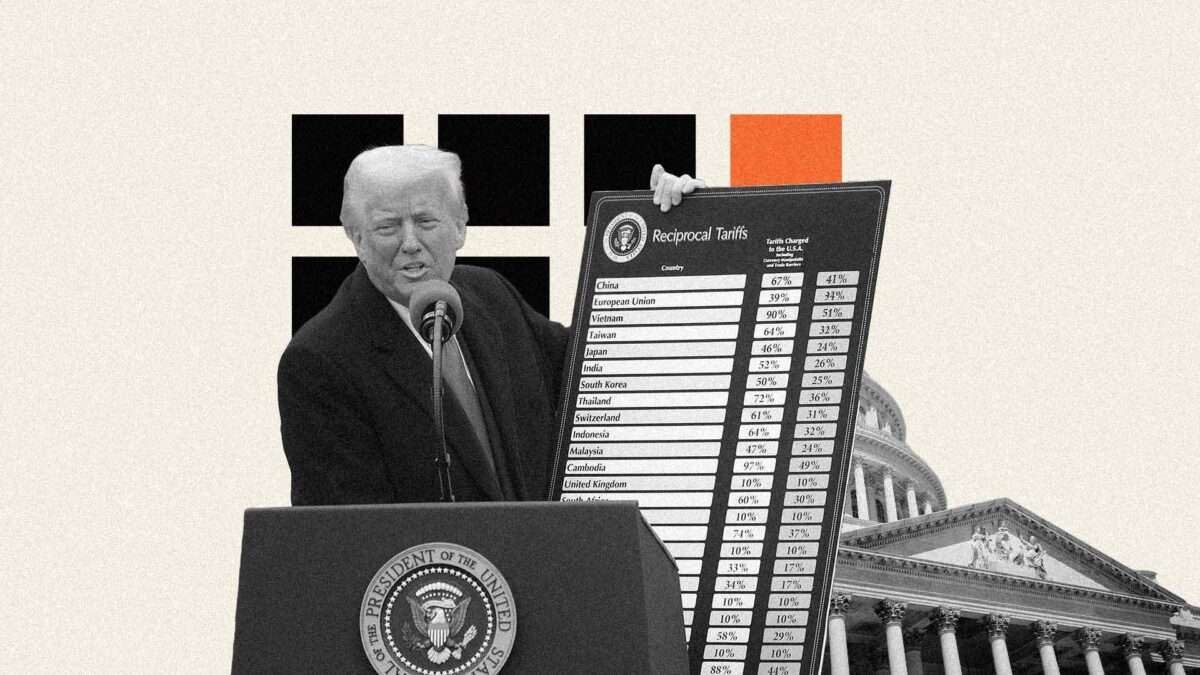 (NA)
(NA) In a major expansion of his assault on legal immigration, Donald Trump today announced a massive new travel ban. It goes beyond those instituted in his first term. My Cato Institute colleague Alex Nowrasteh - a leading immigration policy expert - has a helpful summary of the travel ban, and why it's utterly unjustified:
President Trump announced that he's banning almost all travel and immigration from Afghanistan, Burma, Chad, the Republic of Congo, Equatorial Guinea, Eritrea, Haiti, Iran, Libya, Somalia, Sudan, and Yemen for "terrorism-related and public-safety risks." There are some exceptions for adoptions, immediate family members of US citizens, and a handful of other visas. A single terrorist from those countries murdered one person in an attack on US soil: Emanuel Kidega Samson from Sudan, who committed an attack motivated by anti-white animus in 2017. The annual chance of being murdered by a terrorist from one of the banned countries from 1975 to the end of 2024 was about 1 in 13.9 billion per year….
Trump also restricted travel from Burundi, Cuba, Laos, Sierra Leone, Togo, Turkmenistan, and Venezuela, albeit less severely than from the dozen countries above. Terrorists from those countries murdered five people in attacks on US soil since 1975, the last one in 1980. Cuban terrorists were the only perpetrators of attackers during that period who murdered people in their attacks.
The threat of foreign-born terrorism on US soil is above zero but also small and manageable without further government interventions. The government spends much more on anti-terrorism activities than would pass a cost-benefit test. The last person murdered in an attack committed by a foreign-born terrorist was in 2019 when Saudi-born Mohammed Saeed Alshamrani murdered three in a shooting at the Pensacola Naval Air Station. He was here on a visa training with the US military. Zero Americans were murdered in attacks on US soil committed when President Biden was in office, the first administration in my data set not to have a single American die in such an attack.
As Alex explains, immigrants from the affected countries also have lower crime rates than native-born Americans. Barring them will not improve public safety:
Trump also justified the country-level travel and immigration restrictions to prevent immigrant criminality on the assumption that travelers and immigrants from those countries are serious sources of crime. According to the US Census and American Community Survey Data, travelers and immigrants from the dozen banned countries have a nationwide incarceration rate of 370 per 100,000 in 2023 for the 18-54 aged population – 70 percent below that of native-born Americans. Their incarceration rate is about 16 percent higher than for all legal immigrants and 40 percent below all illegal immigrants. The incarceration rate for the visa-restricted countries of Burundi, Cuba, Laos, Sierra Leone, Togo, Turkmenistan, and Venezuela was almost identical at 369 per 100,000.
As the American Immigration Council explains, barring nearly all migrants from these countries will significantly damage the US economy, and have negative humanitarian effects, as well. I would add that migrants from many of these countries - including Cuba, Iran, and Venezuela - are fleeing horrific poverty and oppression by communist, radical Islamist, and other authoritarian regimes. If Republicans truly cared about combating communism and radical Islamism, they wouldn't shut America's doors to their victims.
Thanks in large part to the Supreme Court's badly flawed 2018 ruling upholding an earlier Trump travel ban in Trump v. Hawaii, it will be nearly impossible to challenge this new travel ban on the grounds that it is motivated by ethnic or other bigotry. But it may be possible to challenge on other grounds.
Back in 2020, I outlined how an earlier Trump travel ban could potentially be challenged under the nondelegation doctrine, which constrains the transfer of legislative power to the executive. As interpreted by the Supreme Court in Trump v. Hawaii, 8 U.S.C. Section 1182(f) - the statute underlying both the first term travel bans and this new one - seems to give the president nearly unlimited discretion to restrict any and all immigration. Today's gargantuan travel ban, based on little or no justification, reflects that understanding. That sure seems like the very sort of "unlimited" grant of authority two courts just struck down as unconstitutional in last week's rulings against Trump's tariffs (including in a case brought by the Liberty Justice Center and myself).
The immigration situation is more complicated than that of tariffs. Among other things, Article I of the Constitution specifically gives Congress power over tariffs, while the Constitution does not clearly indicate which branch of government has the power to restrict immigration (most likely because the federal government wasn't supposed to have that power at all). But in the 1889 Chinese Exclusion Case - the awful decision establishing that the federal government does have power over immigration - the Supreme Court states that the authority belongs to "the legislative department."
I will likely have more to say about possible legal challenges in future posts.
The post Trump's Massively Cruel New Travel Ban appeared first on Reason.com.













 Bengali (Bangladesh) ·
Bengali (Bangladesh) ·  English (United States) ·
English (United States) ·